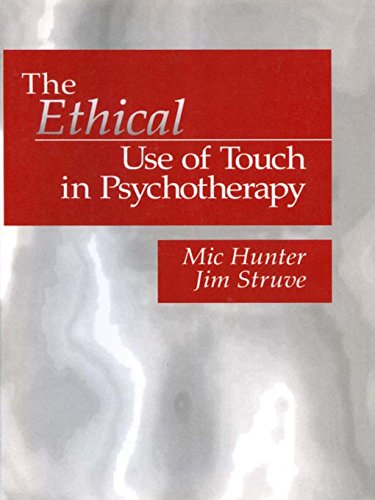The Ethical Use of Touch in Psychotherapy
no information available
This is an excellent book... long overdue... [it] provides ample food for thought and encourages discussion. I simply couldn't put it down. The authors... write passionately about the most basic human need - touch and being touched - as part of the overall healing process. Both authors draw on a wealth of professional experience in working with psychiatric inpatients, severely traumatised patients and sexually misued people to build the foundation of their views... the book encourages the reader to look into the dynamics of the therapeutic process in a new light' - The Psychotherapy Review Is the bias against touch in psychotherapy justified? Is ethical touch an oxymoron? Can the recovery process be complete without healing touch? Mental health professionals are entrusted with the awesome responsibility of providing appropriate treatment for clients in a safe environment that nurtures trust, a necessary ingredient for optimum movement through the therapeutic process. Though treatment approaches vary, most modalities are verbally based and, in theory, exclude physical contact. Fearing that any form of touch would likely lead to sexual feelings or interaction, clinicians tend to shy away from the topic. In this book, however, Mic Hunter and Jim Struve skilfully demonstrate that touch - a most basic human need - is intrinsic to the healing process along with talk-therapy, regardless of the practitioner's theoretical orientation. While the use of touch is a given in other health care settings, it remains a benefit denied as taboo in psychotherapeutic relationships, due to transgressors whose unscrupulous use of a valuable technique have marred its reputation. This book, which is based on years of sound research and clinical experience, encourages readers to conduct a meaningful self-reflection and explore possible misconceptions related to touch in order to rejuvenate its acceptance. ... Read more Read less











